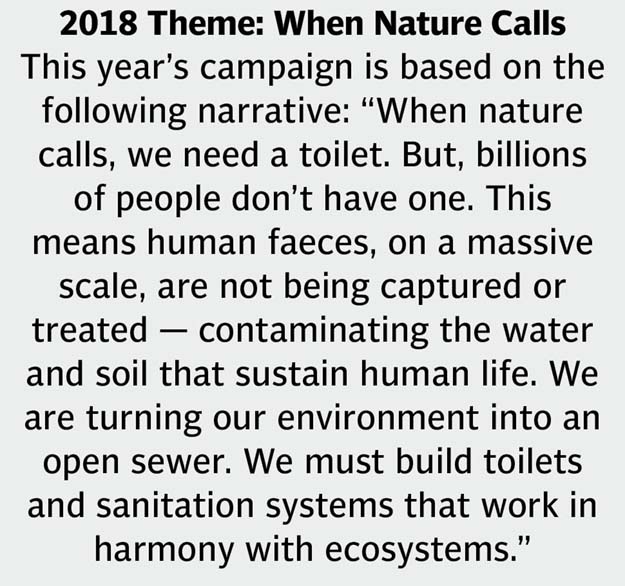
A recent United Nations progress report shows that with just 12 years until the deadline, we are seriously off track to achieve the Sustainable Development Goal target of sanitation for all by 2030.
These figures contribute to the global totals of 4.5 billion people living without safely managed sanitation, and 892 million people going to the toilet in the open. Human waste, on a massive scale, is not being captured or treated properly, turning the environment into an open sewer. In streets and fields around people’s homes, human excreta are spreading deadly diseases by contaminating water resources and farmland that communities rely on to survive.

So, we must not only build more toilets for those who remain unserved. We must also build more toilets that work in harmony with ecosystems. Nature-based sanitation solutions harness the power of nature to help treat human waste before it returns to the environment.
Most nature-based sanitation solutions essentially involve the protection and management of vegetation, soils and wetlands, including rivers and lakes. For instance, composting latrines capture and treat human waste on site, producing a free supply of fertiliser to help grow crops. And human-made wetlands and reed-beds filter contaminants out of wastewater before it is released back into water courses.
Technologies like these, that expand coverage of sanitation services at the same time as protecting nature, must be a bigger part of the mix as we work to achieve the Sustainable Development Goal target of toilets for all by 2030. The United Nations-led campaign ahead of World Toilet Day is titled ‘When nature calls’; a play on words with a serious meaning. Nature is sending us a message that we must listen to and act upon urgently.
Our ecosystems cannot absorb an ever-growing volume of raw faeces. And billions of people cannot cope with the ill health and indignity caused by ineffective or non-existent sanitation. The sanitation crisis, if allowed to continue, will undermine the overarching ambition of the 2030 agenda: to build safer, more resilient societies on a healthy planet.
With just 12 years to go to the 2030 deadline, for the sake of people and the planet, we must redouble our efforts to provide universal access to toilets, leaving no one behind.

Published in The Express Tribune, November 21st, 2018.
Like Opinion & Editorial on Facebook, follow @ETOpEd on Twitter to receive all updates on all our daily pieces.












COMMENTS (2)
Comments are moderated and generally will be posted if they are on-topic and not abusive.
For more information, please see our Comments FAQ